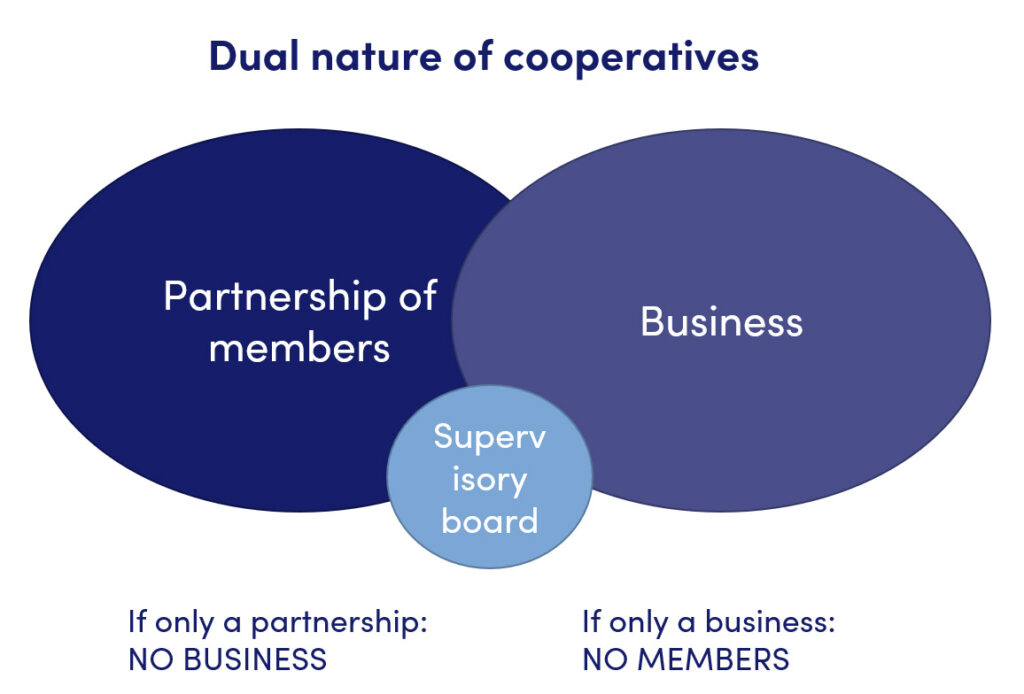The board of directors of the cooperative is often seen only as a statutory, compulsory administrative organ. Since the incorporation stage, the board should be considered as a resource: the question is, how to compose a board able to generate profitable business and to build confidence among members.
Any cooperative has a double nature: it is a community of members and a business. The position of its board of directors can be described as follows:

The board of directors is in a position where it works simultaneously as a part of the community of members and as the director of the business. If the cooperative has a managing director, the board will delegate him or her some of its operative duties. The position of the board illustrates the importance of its dialogue with its members. The board must be aware of the members’ expectations towards the cooperative and, at the same time, demonstrate the benefits of the cooperative to its members. The position of the board characterizes equally its duty to have an uninterrupted insight in the customer market and work for the cooperative in order to safeguard its future. The board of directors and its members can’t promote the interests of individual members or groups of members, but they will have to contribute to the overall benefit of the cooperative.
The work on the board of directors of the cooperative may be a source of conflict if its members are unable to establish a clear distinction between the overall benefit of the cooperative and the interests of individual members. Conflicts can also be due to the confusion of contemporary roles as a member of the cooperative and as an employee. It can also occur that the members of the cooperative interfere with the work the of board of directors in a way which prejudices its operation. Selection of persons can often generate problems for the board.
The board of directors can be a significant resource for the cooperative. For this, three prerequisites must be fulfilled:
- The aim is to select the best possible members to form the board of directors, each with complementary expertise compared to another. Other important criteria for board members are the ability to work with others, active participation, constructive questioning and commitment and availability of sufficient time. If the member of the board has an extensive network of individuals and relationships, it can help the achievement of the overall benefits of the cooperative, but the networks should not be the exclusive criterium.
- The board of directors works in an objective-oriented manner and is able to make decisions. This requires careful planning of the work in the board and a functional presidency. It is useful to renew the board for freshness at a suitable pace but not too rapidly.
- The selection and the work of the board reflect a look forward. The emerging development of the operating environment must be observed closely. It is important to be aware of the specific strengths and weaknesses of one’s own cooperative. The time used in the board must have a clear forward-looking focus.